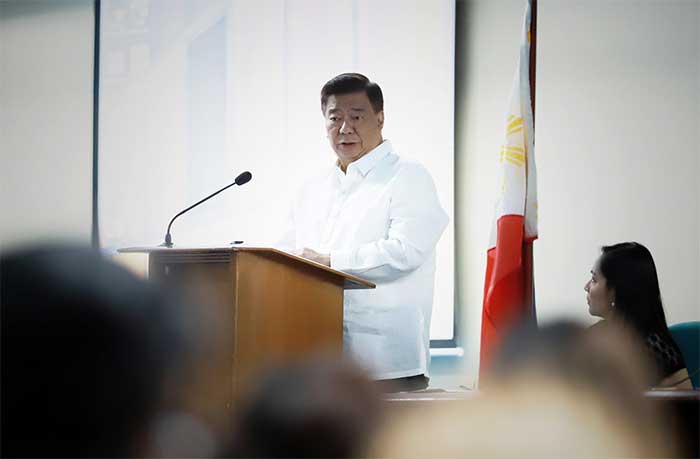
Former Senate President Franklin M. Drilon defended Congress’s decision to increase the unprogrammed appropriations in the 2024 national budget, saying the move is entirely legal and does not violate the Constitution.
“Unprogrammed funds are standby appropriations that are distinct from the approved fiscal program of the National Government. Transactions related to these funds are recorded when they become actual, contingent upon compliance with conditions specified in the Special Provisions of the unprogrammed appropriations in the General Appropriations Act,” Drilon emphasized in a statement on Friday.
The primary purpose of unprogrammed appropriations, as Drilon underscored, is to authorize additional agency expenditures for priority programs and projects beyond the original budget.
“These expenditures are allowed only when revenue collections surpass the resource targets assumed in the budget or when additional foreign project loan proceeds are realized,” he explained.
“I find no constitutional violation in the increase of funding for unprogrammed funds. It becomes a non-issue as long as they adhere to the conditions outlined for releasing the funds,” Drilon asserted, addressing concerns regarding the move’s constitutionality.
“The constitutional prohibition pertains to programmed appropriations,” he stressed.
Drilon cited the Supreme Court’s opinion in the case of Sarmiento v. The Treasurer of the Philippines, highlighting that the Records of the 1986 Constitutional Commission reveal the intention behind Section 25 (1) Article VI of the 1987 Constitution. The aim of this constitutional provision is to prevent the occurrence of a substantial budget deficit if Congress were granted unchecked authority in passing appropriations recommended by the President, as outlined in the budget.
This constitutional prohibition, according to Drilon, serves as an assurance that the government’s expected income will be sufficient to cover the operational expenses of its various agencies and projects specified in the appropriations law.
Drilon also pointed out that Congress had previously increased unprogrammed funds in fiscal years 2008 and 2010. However, it should be noted that while Congress raised the allocated amounts for unprogrammed funds during these years, the actual release of funds from these allocations was limited to the expenditure program of the respective fiscal years.
Drilon was chairman of the Senate Committee on Finance that scrutinized the budget from 2010 to 2013.
Drilon said unprogrammed funds are a necessary tool for the government to address unforeseen expenditures and prioritize essential programs and projects.
However, Drilon emphasized that the public’s focus should be on the transparent release of funds. He clarified that when considering excess funds, it should encompass the entirety of the government’s revenue collection rather than being limited to specific taxes, such as the Sin Tax.




















